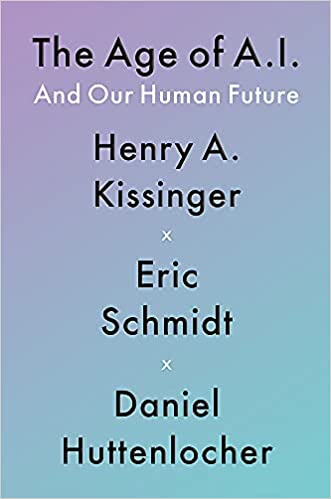Eurocentricism and the AI video Henry Kissinger and Eric Schmidt made

At 99, Henry Kissinger is old enough to remember Hitler’s Germany. Time may have blunted the sharpness of his recollection of the world inhabited by his 16-year-old self – the taste of fear; the perils of being caught by the Nazis; life in a new land, the United States. But Dr Kissinger could be legitimately said to be very much of the old world.
Except that he’s not. He’s got a starring role in a new animated video on artificial intelligence (AI) along with former Google CEO Eric Schmidt and Daniel Huttenlocher, inaugural dean of MIT’s Schwarzman College of Computing.
Dr Kissinger and the others are rendered as cartoons in the video, The Age of AI and Our Human Future, which was a book in an earlier avataar. In the video, the 99-year-old describes how engrossing he found years of workshops on AI. Often, they were organised in his office by Mr Schmidt, along with Mr Huttenlocher.
You can watch the video here. At 16 minutes, it’s worth it, though the AI-generated cubes and figures do become a bit samey after the first part.
The video makes some important, if contested points.
It says that AI is “the most powerful foundational technology ever to have existed”, which not only ignores the wheel, it totally bypasses the following random list of great breakthroughs in human history: plough, paper, printing press, personal computer, internet, electricity, sanitation systems, the steam engine, industrial steelmaking, the refining and drilling of oil, nitrogen fixation (which made modern ammonia-based fertilizers possible and lifted the limit on crop yields), penicillin, vaccination, optical lenses, refrigeration, the internal combustion engine and the aeroplane.
The video says that AI will change the world more than the Renaissance, which began in 14th century Europe and changed our way of seeing – not just each other, but the world around us and different perspectives. This is a profoundly eurocentric view and ignores the fact that the Renaissance occurred centuries after the Arabs engaged in debating issues of free will and formulating the theory of perspective. In 11th century Baghdad, mathematician Ibn al-Haytham wrote Kitab al-Manazir or Book of Optics, later known by the title of its Latin translation, Perspectiva. In it he formulated a visual theory that gave the predominant role to light, recognising that it governs the way we see. By relegating the picture to the realm of the mind, he laid the foundations for the model of linear perspective in the Renaissance.
The video noted that AI can and will alter war, international relations and even our experience of reasoning, that its potential is indeterminate at the moment – it could be for good or ill – but it’s imperative that the nations and people of the world collaborate on a framework of use. It claims to frame conversations “we must be having now to ensure a positive and beneficial collaboration with technology.”
But the oddest and most off-putting thing about the video is Mr Schmidt’s declaration (at about 9:26) that any new international systemic frameworks for AI use must be determined by the geopolitical West. “We want them to be run based on Western values and consistent with our democratic principles,” he says.
That sounds like a prescription rather than a manifesto for collaboration.
Also read:

